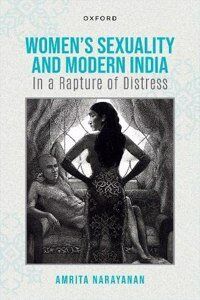Sale!
Women’s Sexuality and Modern India: In a Rapture of Distress (Hardback) | Released: 30-Sep-22
By: Amrita Narayanan (Author) Publisher: Oxford University Press22.01% Off ₹1,400.00
You save ₹395.00
Between the first and second decade of the millennium, women across the world reconsidered the sexual roles they had been playing under patriarchy. The 2012 protests in India triggered some of this global change, ushering Indians squarely into the desired yet uncomfortable ” third wave” feminism which demands the recognition... Read More
In stock
Ships within 1-2 Business Days
100% Orginal Books
Easy Replacement
Certified product
Secure Checkout
On time delivery
Author:
Amrita Narayanan
Publisher Name:
Oxford University Press
Language:
English
Binding:
(Hardback)
About The Book
Between the first and second decade of the millennium, women across the world reconsidered the sexual roles they had been playing under patriarchy. The 2012 protests in India triggered some of this global change, ushering Indians squarely into the desired yet uncomfortable " third wave" feminism which demands the recognition of women as sexual subjects. Beginning from the premise that each country is in a unique relationship to patriarchy, Women's Sexuality in India: In a Rapture of Distress offers pictures of how individual Indian women locate their sexuality amidst the fantasies of Indian patriarchy, and of world culture that imagine their sexuality for them. Built from a data set of upper-middle class women, the book opens up a number of provocative questions. How is dismantling the patriarchy in the imagination different from fighting patriarchy in the outer world? What aspects of sex under patriarchy do women want to give up, and what would they like to keep? What conflicts unfold when daughters welcome as "sexual liberation" ideas that their mothers believed had "come from the west", a west that has been, until fairly recently, a hated colonial oppressor? How did the control of upper-middle class women's sexuality serve as an anchor for collective anxieties about the inherent instability of gender and sexuality? What is the nature of the spectator effect when post-sexual revolution countries listen to the sexuality narratives of countries like India that have not had a sexual revolution?

